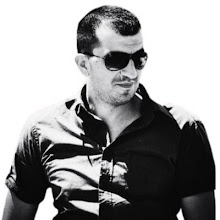127 saat,1,1789,1,1984,1,2.mahmud,1,2003,2,2009 Honduras Darbesi,1,2009 local elections istanbul,1,2014,2,80-039ler,1,90-039lar,1,ab,3,abbas kiarostami,3,abd,116,abd askeri,1,abd dış politikası,7,abd ordusu,6,abd savunma bakanlığı,1,abd sinema sanayi,1,abd-çin ilişkiler,1,abd-çin ilişkileri,6,abd-çin rekabeti,4,abdel fattah al-burhan,1,Abdulbari Atwan,1,abdullah abdullah,2,acik kaynak,1,adsense,1,afd,1,afgan,3,afgan halki,3,afgan ordusu,3,afganistan,20,afganistan güvenliği,2,afganistan seçimleri,2,afganistanda ne yapmali,1,afghan war,1,afghanistan,5,africa,1,afrika,7,Agenda,1,ahmedi nejad,2,ahmedinejad,2,ahmet davutoglu,1,akademik yazmak,1,akita,1,al pacino,1,Aleksey Petrosian,1,ales,1,ali şen,1,aliyev,1,alkislarlayasiyorum.com,1,alliance,1,almanya,4,america,4,american,1,american health reform,1,amerika,15,Amerika,1,amerika saglik reformu,1,amerikan dis politikasi,1,amerikan futbolu,1,amiri,1,anadol,1,anadol stc-16,1,anadolu,2,analiz,43,analysis,1,anayasa,1,and,1,animal,1,animasyon,1,ankara,1,apec,1,apple,1,arabesk,2,arap bahari,2,arap basini,1,arap dunyasi,1,arap halk hareketleri,1,arctic,1,arktika,1,arog,1,artun yeres,1,asabiyye,1,asiannato,1,asim velioglu,1,asker,12,asker TSK sava,1,askeri,2,askeri gelişim,1,askeri harcama,1,aslan,1,asphalt,1,asphalt paved,1,Asya,25,asya pasifik,1,asya-pasifik,1,ata demirer,2,ata nirun,1,ateşgücü,1,aukus,2,australia,1,avci,1,Avcilar-Zincirlikuyu,1,avrasya,2,avrasya projesi ve kirgizistan,1,avrupa,5,avustralya,2,axis shift,1,Aydın,1,b sinifi amerikan filmleri,1,bağdadi,1,balıkçı tekneleri,1,barack,1,barack husein obama,2,barack huseyin obama turkiye'de,1,barack hussein obama,1,barack obama,5,Barack Obama Cairo Speech,1,barack obama yemin toreni izle,1,Barack Obama'nın Mısır Konuşması,1,barış görüşmeleri,1,barışçıl yükseliş,1,barlar sokagi,1,barrack,1,barry newman,1,barzani,1,Baskan,2,baskan obama,1,baskanlik,1,baskanlik sistemi nedir,1,batısızlık,1,bati libya,1,bayrak,1,bechtel,1,bedrettin,1,behzat,1,behzat c,1,belucistan,2,beşir,1,beyaz,1,beyazit sahaflar carsisi,1,beyazit sahaflar carsisi nerede,1,Biden,10,big data,1,bildiriler,4,bilgi,1,bilimkurgu,1,bir zamanlar kuveyt,1,bira,1,biscuit,1,bitcoin,1,blackwater,1,Blog,28,blog yazarlığı,2,blog yazmaya neden basladim,1,blogcu,14,blogcu ordusu,1,blogcu.com,3,blogculuk,2,blogger,8,blogger army,1,blogging,2,blogosfer,2,bm,1,bm 1973 sayili karar,1,bodrum,2,boko haram,1,bolivya,2,bolton,1,bolunur mu,1,bosch,1,bölgesel güvenlik,1,bölgesel hegemonya,2,bölgesel ittifak,1,brent,1,brics,2,britain,1,britanya,1,bruce lee,1,bugun gazetesi,1,bukres,1,burger,1,bursa,3,busan,1,bush,2,büyük doğu dergisi,1,Büyük Güç Rekabeti,1,cam tavan sendromu,1,carr,1,carter,1,catisma,1,cem y?lmaz,1,cem yılmaz,2,ceo,1,ceto,1,chabahar,1,challenge,1,charles bukowski,1,charles dickens,1,charlize theron,1,china,35,chris hedges,1,christopher nolan,1,churchill,1,cin,3,cin ve obama,1,city architecture,1,clash of the titans,1,claus von stauffenberg,1,cocuk esirgeme kurumu,1,cocuklar,2,cokuluslu sirket,1,Cold War,2,competition,1,concrete,1,concrete road,1,congress,1,coronavirus,1,covid-19,1,cox,1,cpec,1,Cumalikizik Village,1,cumhuriyet,1,cuneyt arkin,2,çatışma,1,Çeviriler,5,çevreleme,1,çin,139,çin dış politikası,2,çin ordusu,3,çin sineması,1,çin-pakistan,1,çin-rusya ilişkileri,1,çin-türkiye ilişkileri,2,çin'in dış politikası,1,çok kutuplu adil düzen,1,çok kutupluluk,3,Çorum,1,çürüme,1,dadas hasan,1,daglik karabag,1,Daniel Klein,1,danny boyle,2,dante lam,1,david galula,1,davos,2,davutoglu,1,delusion,1,democracy,1,demokrasi,5,denge,4,deniz milisleri,1,deniz ulke,1,deniz ulke aribogan,1,Dennis L. Okholm,1,dev kedi,1,devlet,9,devlet nedir,1,devrim,8,devrim 2.0,1,devrimci kaddafi,1,di caprio,2,dialogue,1,dikiştutmaz sabri,1,diplomasi,3,diplomat,1,dis politika,1,diyalog,1,dizi,3,django,1,doctor parnassus,1,dodge challenger,1,dogu avrupa,1,dogu libya,1,doksanlar,1,doktor,1,doktrin,1,dolar,1,domuz gribi,1,Don elkins,1,dram,1,dudullu,1,dudullu postasi,1,durus,1,Dünya,53,dürüm,2,e-kitap,1,ebu ala el afri,1,egypt,1,ekmek,2,ekonomi,6,ekvador,1,el besir,1,el cenabi,1,el kaide,1,el mutlak,1,elektronik,1,eleştirel teori,1,emrah,1,endonezya,1,enerji,2,english,49,eralp noyan,1,erdogan,1,Eric Von daniken,1,erol tas,1,erzurum,1,esad,2,eşref gani,2,etanol,1,eugene safian,1,europe,1,eve giden yol,1,evo morales,1,evsiz cocuklar,1,eyup,1,eyup sultan turbesi,1,factotum,1,fakir,1,fasizm,1,fast food,1,felsefe,1,felsefe yapmaki flozof,1,felsefenin baslangic ilkeleri,1,felsefeye cagri,1,fenomen,1,fenomen dergisi,1,fetih 1453,1,fırın,1,filistin,3,film,9,film analiz,2,film elestirisi,1,foreign policy,2,foto,2,fotograf,4,francis fukuyama,2,fransa,3,fransiz devrimi,1,franz oppenheimer,1,freida pinto,1,friendfeed,1,futurizm,1,fuze,1,fuze kalkani,1,fuze kalkani projesi,1,füze,1,g20,1,g7,3,galaktikinsan,1,garanti,1,gastronomical racism,1,gates,1,gaza,1,gazete,2,gazze,4,gecekondu,1,gecekondu sava Irak ABD,1,gelecegin haritasi,1,gelecek,2,gelir adaletsizligi,1,gemi,1,genelkurmay baskanligi,1,geopolitic,1,george bush,1,george clooney,1,george politzer,1,georgia,1,gerasimov,1,gerilim,2,germany,1,ghani,1,giddens,1,global,1,global interregnum,2,global order,2,gol,1,google,2,google keep,1,gozleme,1,graham fuller,1,gramsci,2,grotius,1,guc dengesi,1,guney amerika darbeleri,1,guney sudan,1,guney sudan petrol boru hatti,1,gunluk kisisel gazete,1,guray,1,guvenlik,3,guvercin ordusu,1,guzelyali,1,Gündem,20,güney asya stratejisi,1,güney kore,3,güvenlik,2,güvenlikleştirme,1,gwadar,3,haber,1,haberturk,1,haberturk gazetesi,1,hachi,1,hachiko,1,Hachiko A Dog's Story,1,hadigari,1,haifa limanı,1,hakan balamir,1,halford mackinder,1,halikarnas,1,halk,4,halklar,1,hamaney,1,hancock,1,hap veren amca,1,harem,1,hariri,1,harun,1,hayal,1,hayalet,1,hayat,3,hayvan partisi,1,health care,1,heartland,1,hedging,1,hegemony,2,hegemonya,10,henry chinaski,1,henry kissinger,2,hibrit savaş,6,hindistan,9,hitler,1,hobbes,1,hobsbawm,1,hoffman,1,honduras,1,hong kong,4,hong kong olayları,1,howard hawks,1,ht gazete,1,huawei,1,hukuk,1,husi,1,husnu mubarek,2,hussoloji,12,hybrid,1,hybrid cold war,1,hybrid warfare,2,IMEC,2,ırak,3,Irak,12,ırak seçimleri,1,Iraq,2,ışid,2,Işid,1,icerik,1,icerik hirsizligi,1,idam,1,idealizm,3,idealizm nedir,1,ideoloji,1,ihracat,1,ilk turk spor arabasi,1,imdat bayram,1,imparatorluk,1,imran khan,1,imza kampanyasi,1,inception,1,ingiltere,3,intelligence,1,internet,4,ipek yolu,1,irakiye,1,iran,30,iran füze,1,iran nuclear,1,iran ordusu,1,iran presidential election,1,iran secimleri,2,iran sinemasi,3,iran ve nukleer,1,iran ve turkiye,1,iran ve twitter,1,iranian cinema,3,iskender,1,iskender kebab,1,iskender kebap,1,islam devleti,1,israel,1,israil,9,İsrail,1,istanbul,5,istihbarat,2,isyan,2,işbirliği,2,italian,1,italya,2,italya'da fasizm,1,ithalat,1,ittifa,1,iyi yazmak,1,james franco,1,japon,1,japon ordusu,1,japonya,4,japonya demokrat partisi,1,jeopolitik,5,jim carrey twitter,1,jinping,11,jintao abd'de,1,johnny deep,1,jokowi,1,joseph nye,2,kachin,1,kaddafi,7,kaddafinin oglu,1,kader,1,kadikoy,1,kadir topbas,1,kalkan,1,kalpgah,1,kamil koc,1,kan,4,kanal d,1,kanalizasyon,2,kaos,1,kapitalizm,1,kar,1,karachi,1,karadeniz,1,karate,1,kasım süleymani,1,kaygisizlar,1,kayhan yildizoglu,1,kc-135,1,keep,1,kemal kilicdaroglu,1,kemal sunal,3,kentucky,1,kentucky fried chicken,3,kenya,2,kerrubi,1,kesanli ali destani,1,keşfolunmak,1,kfc,2,kfc panini burger,1,kırım,2,kızıldeniz,1,kilic disli kaplan,1,kim jong un,2,kirgizistan isyani,1,kissinger,1,Kitap,10,kitapbolumu,2,kitaplarım,1,kiyamet,1,kofi annan,1,kola,1,komedi,1,kongre,1,konstrüktivizm,1,konstrüktivizm nedir,1,kopenhag school,1,korengal vadisi,1,korengal valley,1,koridor,2,korku,2,kovboy millet,1,kozyatagi,1,kriz,1,kucuk emrah,1,kulturel,1,kung-fu,1,kuresellesme,3,kuresellesme nedir,1,kurtlar vadisi pusu,3,kurtlar vadisi pusu 46.bolum izle,1,kurtlar vadisi pusu 47.bolum izle,1,kuşak ve yol girişimi,7,kutup,2,kuzey irak,4,kuzey irak harekati,1,kuzey kore,5,kuzey suriye,1,küresel düzen,2,küresel fetret devri,1,küresel güvenlik girişimi,1,küresel hegemony,1,küresel hegemonya,2,küresel imparatorluk,1,küresel rekabet,2,küresel ticaret,1,latin amerika,1,lebron james twitter,1,lee van cleef,1,lenin,1,leviathan,1,liberal,1,liberal uluslararası düzen,1,libya,9,libyada olaylar,1,lig,1,lopez,1,luccarian,1,lübnan,1,mackinder,1,Makale,147,makaleler,4,malezyai el-kaide,1,maliki,1,manifesto,1,manolo,1,manset,3,manuel zelaya,1,mao,1,Map of Energy,1,martin scorsese,1,mattis,2,mecidiyekoy,1,mecliste konusma,1,media,1,medvedev,1,medya,7,mehdi savaşları,1,meksika ve blog,1,mendil satan cocuklar,1,merkel,1,metal FIRTINA,1,metin erksan,1,metrobus,2,Mevlana Celaleddin RUMİ ve NOSTRADAMUS,1,mexico,1,meydan,1,meyve sikacagi,1,meyve suyu,1,mezhep,1,mezopotamya,1,michael jackson,1,middle east and soft power turkey,1,milliyetçilik,1,mineral,1,misir,6,misir devrimi,1,misir halk isyani,1,misir isyani,1,misir ve devrim,1,mitrany,1,mizah,2,modern,3,modernizm,1,moğolistan,1,mohsen makhmalbaf,3,morgenthau,1,mortgage,1,moskova,1,msn roportajlari,1,mubarek,4,mubharek,1,mucadele,1,mudahale,1,mudanya,1,mugla,1,muhammed yusuf,1,Muhiyddin-i ARABİ,1,multipolar,3,multipolar world,3,murdoch,1,muro,1,musavi,1,musevi,1,muslum gurses,1,musluman kardesler,1,mussolini,1,musterek dostumuz,1,münih güvenlik konferansı,1,myanmar,1,napolyon,1,nation,1,nato,20,nato isaf,1,nazi,1,nazi iktidari,1,necati cumali,1,necip fazıl kısakürek,1,Nedir?,2,nejat isler,1,nemeth,1,neo-gramşiyan,1,neo-pers imparatorluğu,1,Nevşehir,1,new cold war,3,new england patriots,1,newspaper,1,newyork,1,newyork giants,1,Nietzsche oldu Bir Hipopotam Olarak Yeniden Dogdu,1,nijerya,1,nukleer,1,nükleer,1,nükleer görüşmeler,2,obama,18,obama doktrini,1,obama health care,1,obama kazandi,1,obama mecliste,1,obama saglik reformu amerika,1,obama ve jintao,1,obamanin afganistan plani belli oldu,1,obamanin meclis konusmasi,1,obor,1,okan bayulgen,1,okul,2,okuma,1,olaylar,1,olumcul tuzak,1,omdurman muharebesi,1,one belt one road,7,opec,1,operasyon,4,operasyon kızıl deniz,1,operation,1,operation red sea,1,operation valkyrie,1,ordu,7,orta koridor,2,ortadogu,6,ortadoğu,15,ortak bildiri,1,ortaklık,2,osetia,1,osmanli,1,osmanli imparatorlugu,1,osmanli ve modernlesme,1,otantik,1,otobus yolculugu,1,otosan,1,ottoman,1,oyuncak,1,ozgurluk,1,pakistan,7,pakize suda,1,palestine,2,pandemi,2,panini,1,paradoks,1,parali asker,1,parali ordu,1,parlamento,1,parnassus film yorum,1,partnership,1,pasifik,3,pastane simidi,1,patriot,1,Pekin,1,penguen,1,penguen dergisi dudullu postasi,1,people,1,peres,1,petraus,1,petrol,10,petrol fiyatları,1,picnic,1,pierre loti tepesi,1,pixar,2,piyasalar,1,pizza,1,Platon bir gün kolunda bir ornitorenkle bara girer,1,polat alemdar,2,policy,1,politic,2,political party for animals,1,politika,3,politzer,1,polonya,1,pompeo,2,pop,1,populer,1,populer kultur,2,posture,1,power,1,powerful turkey,1,prebhakaran,2,president,3,prime minister,1,problem,3,proje,1,propaganda,1,protracted war,1,proud,1,psikoloji,1,pulp fiction,1,putin,13,pyd,1,quentin tarantino,1,radikal hareketler,1,rafael correa,1,rajapaksa,2,raki,1,realizm,2,realizm nedir,1,recep ivedik,1,recep tayyip erdogan,1,reel politik,1,referandum,1,rekabet,6,reklam,1,resim,1,restrepo,1,richard gere,1,richard sarafian,1,rivalry,5,road,1,robert cox,1,robert scheer,1,robertdeniro,1,roportaj,1,ruhlar,1,rupert,1,rus,2,russia,11,rusya,45,rusya'da yasam,1,Rutte,2,s300,1,s400,1,saddam,1,sadr,1,sah rejimi ve iran,1,sahaf,1,sahan gokbakar,1,sahte kabadayı,1,said,2,saitabat,1,saitabat waterfall,1,sakar şakir,1,saldiri,1,salgın,1,salman,1,sam amca,1,samire makhmalbaf,3,sanal para,1,sarem,1,sarkisyan,1,sarkozy,1,sarkozy ne yapacak,1,saudi arabia,1,sava abd Irak afganistan somali,1,savas,12,savaslarin ulkesi,2,savaş,9,savaşçı kurt diplomasisi,1,savunma bütçesi,2,scarface,1,schengen visa,1,schengen vizesi,1,secim,3,securatization,1,security,1,seksenler,1,sekteryan,1,serdar akinan,1,seref zazaoglu,1,seref zazaoglu resimleri,1,serif mardin,1,sezercik,1,shangri-la dialogue,1,show tv,1,shutter island,1,shutter island filmi analiz,1,shutter island filmi yorum,1,sınır çatışmaları,1,siber savas,1,silah,2,simit,2,simon peres,1,sinbo,1,Sinema,32,sinema iran,3,singapur,2,sino,1,Sinop ve Şırnak,1,sipri,1,siyah devrim,1,siyahlar,1,siyasal kultur,1,siyaset,3,Siyasi Tarih,3,Slumdog Millionaire,1,smilodon,1,smith,1,soft power,1,sogutlucesme,1,soğuk savaş,8,sokak cocuklari,1,Son Dakika,1,son donem turk sinemasi,1,sony dsc 600,1,sorun,1,sosa,1,sosyal kredi sistemi,1,sosyal medya,1,sosyal medya nedir,1,sosyoloji,1,sovyetler,1,Spor,1,Sport Turkish Car 1600,1,spykman,1,sri lanka,4,sscb,2,Stanley M. Honer,1,stauffenberg,1,stc,1,steve jobs,1,steve jobs'un konusmasi,1,strateji,7,stratejik derinlik,2,stratejik ittifak,2,stratejik ortaklık,1,stuxnet,1,su,3,sudan,4,sudan savasi,1,sukiyaki,1,sukiyaki western django,1,sun tzu,1,super kahraman barack obama,1,superbowl,1,suriye,11,suriye meselesi,1,suriye plan,1,susamli tavuk,1,susuz yaz,1,suudi arabistan,8,sümer,1,şangay,1,şangay işbirliği örgütü,1,şiö,2,tabloid,1,tabloid gazete,1,taiwan,2,takeshi miike,1,taliban,2,talih,1,tamil,3,Tamil Kaplanları,3,tank,1,taraf,2,tarih,3,tarihin sonu,2,tatbikat,1,tayvan,9,Tayvan seçimleri,1,taze meyve suyu,1,teknoloji,2,telefon,1,televizyon,3,teror,2,terorism,1,terorist,1,thank,1,the hurt locker,1,The Imaginarium of Doctor Parnassus,1,think,1,think thank,1,thomas c. hunt,1,Thomas Catheart,1,ticaret,3,ticaret savaşı,2,ticaret savaşları,3,ticari,1,ticari savaş,1,tigers,1,times,2,tinerci,1,titanlar,1,titanlarin savasi,1,tom waits,1,tony montana,1,Top 10 Mexico Blogs,1,toplanti,1,toplum,1,toplumsal,3,trade war,1,trade wars,1,traffic,1,tren istasyon,1,troops,1,trump,19,Tsai Ing Wen,1,tsai ing-wen,1,TSK,3,tuketim,1,tunus,3,turban,1,turbulen,1,turk,1,turk dis politikasi,1,turk sinema,2,turk sinemasi,2,turk sinemasi basarili mi,1,turk televizyonlari,1,turkey,3,turkish,2,turkiye,11,turkiye arastirmalari,1,turkiye devleti,1,turkiye ve kuzey irak,1,turkiye votka,1,turkiye'de toplum ve siyaset,1,türkiye,3,tv,1,TV8,1,twitter,2,twitter ne ise yarar,1,twitter nedir,1,uds,1,ukraine,3,ukrayna,6,uludag,1,ulus,2,ulus devlet,1,ulusal güvenlik,1,uluslararası iliskiler nedir,1,uluslararasi ekonomik iliskiler,1,uluslararasi iliskiler,2,uluslararasiiliskiler,1,ulvi dogan,1,uncle sam,1,up,1,up filmi,1,us,18,us china,2,us-sino relations,1,usa,20,utopia,1,uzun ateşkesler dönemi,1,uzun yürüyüş,1,vahsi,1,valkyrie,1,vance,1,vanishing point,1,varan,1,varan bus,1,varan turizm,1,varil fiyati,1,vekalet savaşları,1,video blogging,1,vietnam,1,visa,1,vodka,1,vostok 2018,1,votka,1,waever,1,waltz,1,wang yi,3,war,9,waterfall,1,wendt,1,western,1,why did I start to post blog,1,will smith,1,wolf warrior diplomacy,1,Wordpress,1,xe,1,xi,1,xi jinping,10,yada Dr.Bedri Ruhselman,1,yahsi bati,1,yahsi bati cem yilmaz,1,yakt,1,yapay zeka,1,yapisalci yaklasim,1,yas,1,yaz,1,yazi,1,yazmak,3,yazmamak,1,yemek,1,yemen,2,yemin toreni izle,1,yeni dunya duzeni,1,yeni düzen,1,yeni japonya,1,yeni nesi blogculuk,1,yeni nesil,1,yeni soğuk savaş,4,yes we can,1,yesilcam,4,yok,1,yolcu,1,yolsuzluk,1,yorum,1,yukari bak,1,yukselen guc turkiye,1,yuvarlama,1,zafer algoz,1,zam,3,zaman,5,zeytinbagi,1,zihin kontrolu,1,zindan adasi,1,zirve,3,zte,1,zulfikar tanklari,1,








.png)
.png)

.png)
.png)





YORUMLAR